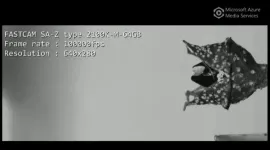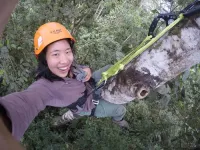(Press-News.org)
William Shakespeare used the word dotage to capture reduced mental ability (as in being blindly in love) rather than as a quaint term for old age, successes were really outcomes – one could talk of a ‘bad success’ – and, it turns out, the word bastard back then most often referred to a flower that was genetically hybrid.
A new dictionary, a verbal treasure trove of the nuances and uses of Shakespeare’s words, is published this week.
While dinner was preferred by Shakespeare for what we might think of as lunch (although his contemporaries used it to refer to an evening meal), beef, as today, was strongly associated with the English, but particularly the lower ranks (it was thought to reduce intelligence).
And while fish was not only considered inferior to red meat, it was also considered to be ‘decidedly dodgy’, being associated with Catholicism or sex.
This new research by Lancaster University sheds light on the times with the publication of The Arden Encyclopedia of Shakespeare’s Language, to be published by Bloomsbury on August 24.
Its publication comes after 25 years of preparation, a £1 million Arts and Humanities Research Council grant, a team of up to 25 researchers, and seven years of hard work.
The project, conceived and led by Jonathan Culpeper, a Professor of English Language and Linguistics at Lancaster University, will result in a unique 5 volume reference work, detailing and illuminating Shakespeare's rich language.
A key feature of the project is that is uses corpus linguistics, the computer-aided analysis of massive datasets of language, to provide evidence-based accounts of Shakespeare's language.
And not just of Shakespeare’s words.
The volumes of the Encyclopedia will also reveal the linguistic thumbprints of plays and characters plays, the articulation of themes such as love and death, and the networks of character interaction.
This month sees the publication of the first two volumes, which together constitute a dictionary.
Professor Culpeper, who worked together with Dr Andrew Hardie and Dr Jane Demmen, also from Lancaster University, on these volumes, said: “This is the first fully corpus-based dictionary of Shakespeare’s language and most comprehensive since Alexander Schmidt’s in the early 1870s.”
Volumes 1 and 2 comprise 20,000 word-entries gleaned from a million-word corpus of Shakespeare’s plays and compared with a matching million-word corpus of contemporary plays, along with huge corpus of 320 million words of various writings of the period.
Professor Culpeper said: “So why the comparisons?
“Other dictionaries define Shakespeare by looking just at Shakespeare. The result is a bit circular – Shakespeare’s words had lives amongst his contemporaries, and we pay attention to that, along with what they are doing in Shakespeare’s plays.”
It is obvious perhaps that wicked occurs densely in religious texts of the time, but who would have guessed that of the highly frequent word ourselves?
Frequent words such as alas or ah are revealed to be heavily used by female characters, doing the emotional work of lamentation in the plays (especially histories).
“Frequent words,” Professor Culpeper comments, “often excluded from previous Shakespearean dictionaries, have a wood for the trees problem.”
The dictionary also surveys the infrequent, flagging words that occur but once in Shakespeare, such as bone-ache (syphilis) or ear-kissing (whispering, though other writers used it for flattering), and words that seem to have their earliest occurrence in Shakespeare (including, the decidedly modern sounding self-harming).
The Encyclopedia is written for a general audience. The remaining volumes will be published over the next three years.
For more information: https://www.bloomsbury.com/uk/arden-encyclopedia-of-shakespeares-language-9781350017955/
END
BRCA1 and BRCA2 are well-known breast cancer genes associated with a significantly increased risk of hereditary breast and ovarian cancer. However, there are an additional eleven genes associated with elevated risk for these types of cancer. A multi-year Swedish study now reveals that the proportion of women with genetically confirmed hereditary breast cancer doubled by including all genes in the screening test.
In a Swedish research study including patients between 2012 and 2018, all cancer genetic clinics in Sweden participated. A total of 4759 individuals underwent comprehensive ...
Picture this scenario: You and a friend are walking around your neighborhood when you stop at a crosswalk. As you wait, the noises of the world and your internal thoughts all vie for your attention. Suddenly, you see a motorist nearly hit a bicyclist.
“Whoa, did you see that?” you say to your friend.
“I sure did; that was a fully restored 1967 Ford Mustang,” your friend replies, referring to a car separate from the near-traffic collision.
Despite being in the same place at the same time, and looking at the same scene, you and your friend paid attention to different things.
Why? ...
DURHAM, N.C. -- If you happened upon a witch hazel plant in the forest, you might describe it as a sweet-smelling shrub with crinkly ribbon-like petals. But to Duke University graduate student Justin Jorge, it’s a howitzer.
That’s because of the impressive firepower of its fruits.
When witch hazels are ready to disperse their seeds, their woody seed capsules split open. Pressure builds up, and eventually the seeds shoot out like bullets fired from a rifle, hitting 30 feet per second in about half a millisecond.
“If you blink you’ll miss it,” said Jorge, who worked on this project as part of his Ph.D. thesis in biomechanics with senior author ...
URBANA, Ill. — Like every industry, modern farming relies heavily on plastics. Think plastic mulch lining vegetable beds, PVC pipes draining water from fields, polyethylene covering high tunnels, and plastic seed, fertilizer, and herbicide packaging, to name a few. In a new review article, University of Illinois Urbana-Champaign researchers say these plastics are now widely dispersed in agricultural soils in the form of microplastics and nanoplastics.
That’s not necessarily new; microplastics have been found in nearly every ...
In the rural United States, an adolescent who drinks heavily has a 43% greater probability of carrying a handgun in the following year, according to a study published this month in The Journal of Rural Health.
“While there has been a lot of research on this correlation in urban areas, little is known about the association between alcohol use, particularly heavy drinking, and handgun carrying in rural areas,” said lead author Alice Ellyson, an acting assistant professor of pediatrics at the University of Washington School of Medicine and investigator in UW Medicine's Firearm Injury & Policy Research Program.
“Our study ...
In a groundbreaking endeavor, researchers at the University of Rochester have successfully transferred a longevity gene from naked mole rats to mice, resulting in improved health and an extension of the mouse’s lifespan.
Naked mole rats, known for their long lifespans and exceptional resistance to age-related diseases, have long captured the attention of the scientific community. By introducing a specific gene responsible for enhanced cellular repair and protection into mice, the Rochester researchers have opened exciting possibilities for unlocking the secrets of aging and extending human lifespan.
“Our study provides a proof of principle ...
As ocean temperatures rise, coral reefs face increasing threats as ecosystem damage has accelerated in recent decades. The ability to preserve and revive biodiverse coral samples has become an essential priority for the health and future of the world’s oceans.
A Texas A&M University-led interdisciplinary team of researchers demonstrated that live coral can be preserved through a new technique called “isochoric vitrification.” This process takes selected coral fragments through the stages of cryopreservation, ...
“We hope that these results will inform future attempts at anti-macrophage therapy and lead to better outcomes for patients in the not-too-distant future.”
BUFFALO, NY- August 23, 2023 – A new editorial paper was published in Oncotarget's Volume 14 on June 6, 2023, entitled, “A macrophage is a macrophage is a macrophage—in metastasis.”
In this new editorial, researcher Thomas T. Tapmeier from Monash University, Hudson Institute of Medical Research and University of Oxford discusses a recent study he co-authored on how lung macrophages evolve during metastatic growth of lung colonies in a mouse model of melanoma. Macrophages have important roles ...
With an extendable pole fitted with a small camera, Alison Ke could get a clear view of the inside of a nest box, including one time when a small, green Pacific parrotlet laid eggs. Ke, who earned a Ph.D. in ecology from UC Davis, led a research project to find out how converting rainforest to farmland affects the habitat of birds who rely on tree holes, or cavities, for nesting.
Ke worked closely with local scientists and community members to study birds around the Mache-Chindul Ecological Reserve, an area in northwest Ecuador that has experienced rapid deforestation and agricultural expansion in the past 50 years. Their study, ...
Between 30 to 50 percent of people living with multiple sclerosis (MS) will experience memory problems but the cause is uncertain. Brain lesions are the hallmark imaging sign used to diagnose MS and are often associated with memory dysfunction. However, increased MS brain lesions are not specific to memory problems and are also associated with fatigue, walking difficulty and other common MS symptoms. Previous studies that attempted to align the anatomy of lesions associated with memory problems in MS led to conflicting ...








